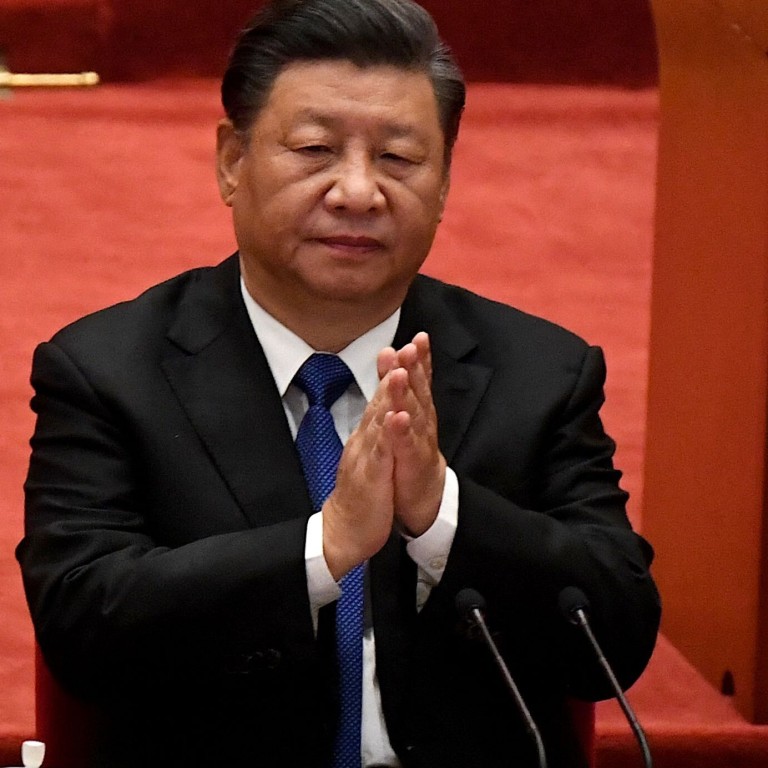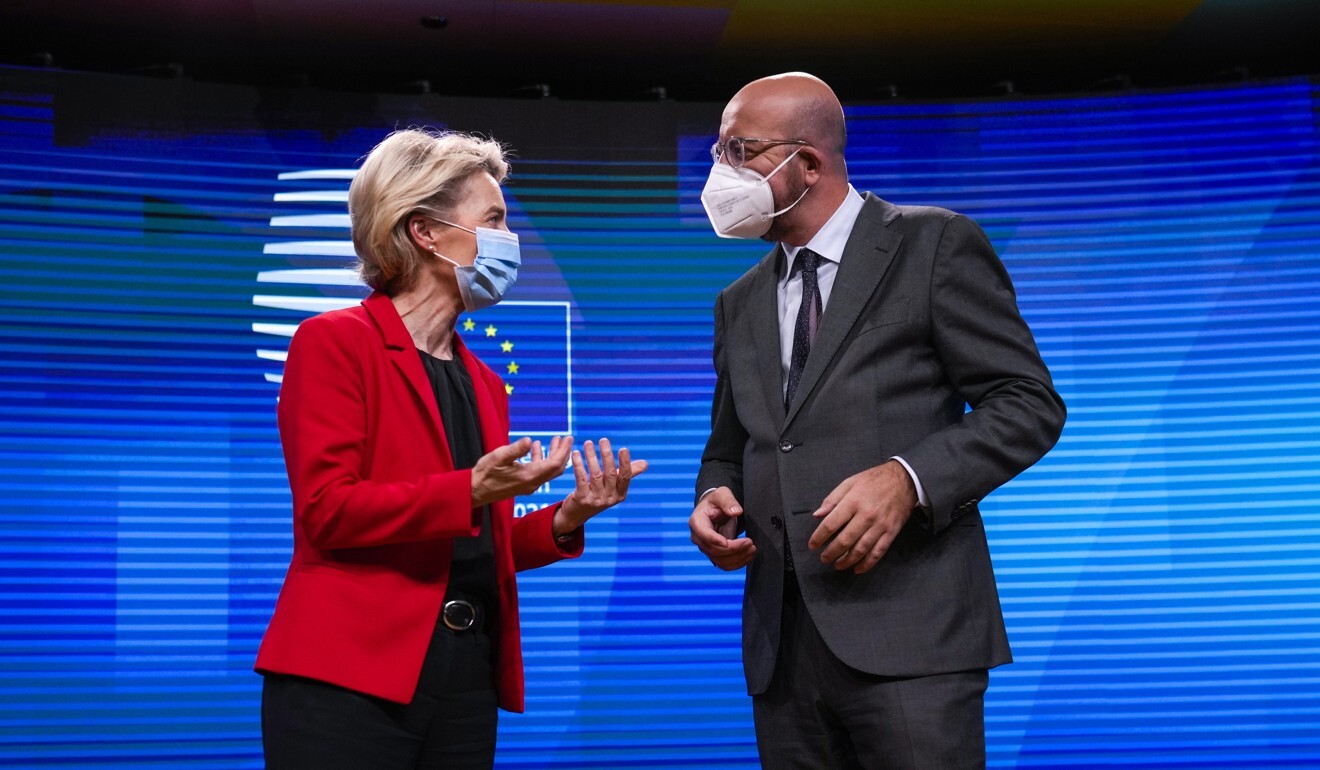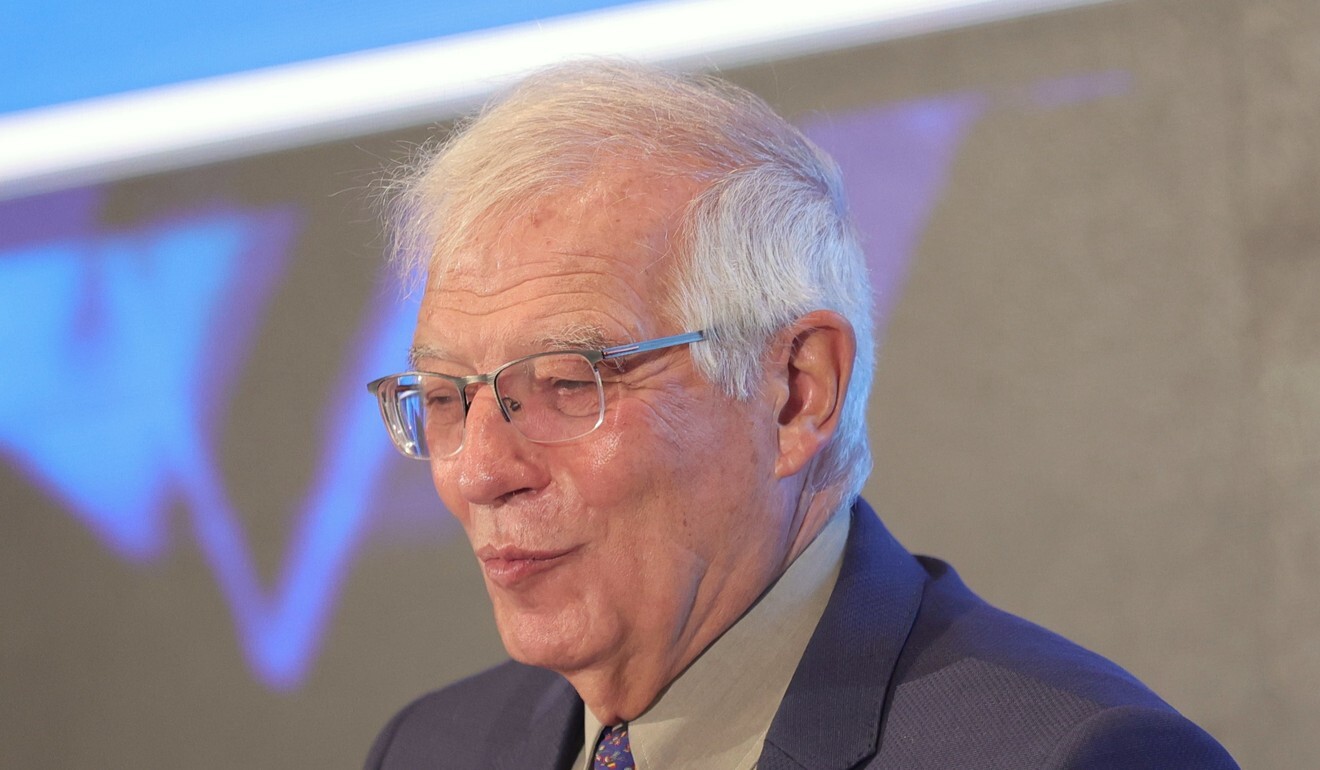
Exclusive | Xi Jinping plans call with EU’s Charles Michel, as Brussels looks to steady ship on China
- The Chinese president will speak with the European Council president on Friday
- Call would follow European Union leadership talks last week on how the bloc should engage with China going forward
Chinese President Xi Jinping plans to conduct a telephone call with European Council President Charles Michel on Friday, according to an EU official familiar with the plan.
Following a meeting of the European Union’s 27 leaders last week, at which they discussed a need to “rebalance” ties with China, the call between Xi and Michel would mark the first time that the two have spoken directly since the end of last year.
Since their last discussion, the EU and China have endured their rockiest patch for decades. In March, the pair exchanged sanctions, leading to a bilateral investment pact politically agreed at the end of December to be put on ice in May.

One of the bloc’s smallest members, Lithuania, has become embroiled in a diplomatic spat with Beijing over Taiwan and has been attempting to push a tougher line on China at the heart of the EU.
Friday’s call, expected to be made at 10.30am Brussels time, may be seen as a way to try and steady the ship, with some quarters of the EU known to be alarmed by how quickly things soured over the first half of the year.
Speaking ahead of last week’s EU leaders’ summit in Slovenia, a senior official from the bloc said: “We feel that it’s time now, after one year, that the EU, in this global world where we see tensions between the US and China, clarifies its position.”
EU defends plan to expand Taiwan relations ‘without recognition of statehood’
The EU leaders also discussed the best manner in which to speak with Beijing. Some member states have pushed for broad talks involving 27 member states and China, while others prefer a smaller core group of members to be involved.
While Xi has spoken on numerous occasions with leaders of individual EU member states, including outgoing German Chancellor Angela Merkel and French President Emmanuel Macron – both individually and together – top level dialogue with EU institutions has been less frequent.
The EU’s foreign affairs chief Josep Borrell spoke with China’s Foreign Minister Wang Yi last month, while climate talks involving the EU’s climate envoy Frans Timmermans and China’s Vice-Premier Han Zheng took place a day earlier.

EU sources said China was reluctant to engage in talks following the sanctions and there has been a concerted effort in Brussels to get the diplomatic exchanges back on track.
In a blog post published on Sunday, Borrell said that at last week’s EU leaders’ discussions on China, they “agreed that we must remain strong in our approach, based on the ‘partner, competitive, rival’ tryptic”.
“In terms of practical policies, the challenge is often how to blend these three elements into a coherent whole,” Borrell wrote. “For me it is clear that the best way to engage China is from a position of unity and strength.
Lithuania urges European Union to cut reliance on China
“We must encourage dialogue and cooperation in certain areas like climate policy,” he added. “But we should also be ready to push back when Chinese decisions run counter to our views, notably on human rights and geopolitical choices.”
And while the crackdown on political opponents, democracy advocates and media in Hong Kong has fallen off the radar in Brussels in recent months, there is a push from member states, within the European Commission and the European Parliament to engage more with Taiwan.
Against this backdrop, Taiwan has been engaged in a high-level charm offensive.
On Monday, Taiwan’s President Tsai Ing-wen addressed the Forum 2000 summit in Prague with an appeal to the EU to prioritise a bilateral investment pact with Taipei.
“We also encourage European Union to establish a bilateral investment agreement with Taiwan,” Tsai said. “Such an agreement will strengthen our mutual interests and solidify our shared values. Taiwan is ready to shoulder its share, and we will not take our partners support for granted.”
Tsai reiterated her “deepest gratitude” to “like-minded friends from across Europe, particularly Lithuania , Poland, Slovakia and the Czech Republic”, referring to both political support and assistance with Taipei’s Covid-19 outbreak.
“Taiwan is ready to be an indispensable partner to Europe, not only in democratic renewal, but also in sectors such as biotechnology, renewable energy, data protection, ocean governance and the semiconductor industry,” Tsai added.


